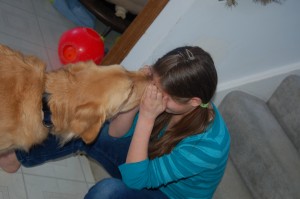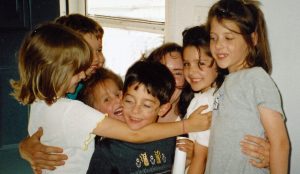(Adapted from my school newsletter column, printed Jan 2010)
Conflict
That awful “C” word! Don’t know too many people who like it.
As a young mom, I never really minded changing diapers. (Did eight in one hour once between twins and toddlers.) Didn’t even mind getting up in the middle of the night.
But I hated the refereeing!
Figuring out the he said/ she saids. Figuring out who started it. Figuring out what should happen next.
It was exhausting!
To be honest, it’s not much easier with adults. Sometimes it’s even harder. And as a family/ group/ community grows, both in age and in numbers—passing that newlywed stage, losing that “new house smell,” getting finger prints on the walls, …we start noticing each other’s socks on the floor, the toilet paper roll put on the wrong way, the toilet seat left up. (Did I just say that on my website??!)

Often we don’t want to say it. Don’t want to talk about it. At least not to the person that it involves. Just keep functioning—and fuming. And soon, problems that are really small have built to enormous proportions.
Are we there? At that enormous stage? Maybe not. But maybe our seams are starting to burst a bit, and we’re struggling to stay connected. To stay working together.
If we learn to work through the socks and the paper rolls and the seats, we can continue to build on our great foundation. Because what every counselor and psychologist will tell you is that having conflict is not the problem. In fact, “no conflict” really means “no communication.”
No communication? Now you really have a problem!
The problem is when we don’t deal with the conflict. —Or maybe I should say, when we don’t deal with it well. Kindly, respectfully,… Yes, and with hard work. Sometimes it’s easier to make snide comments. Talk behind each other’s backs. With Whatevers, and “Talk to the hand” or whatever the new phrase is now. Sooner or later it happens in every group.
But what if instead, we embraced the commitment to work through our conflict. Recently I heard a complaint that came down through the grapevine. I was flabbergasted. Actually stood speechless. Because the person who said it had a completely different memory of a series of events than I. So what now? Does the friendship end? The relationship’s severed?
Truly, it starts with both people deciding to be adults. To talk. Listen. Together—not with everyone else and their brothers. We teach our kids to do it. But somehow those socks and toilet paper rolls seem to follow a different rule. If we play by the same rules that we teach our kids, these conflicts will not only not ruin us. They will make us stronger. More mature.
Yes, those newlywed years are fun. Exciting. But the years following, when you really start to be comfortable with one another, when you’ve started to build traditions and memories—those are the rich years. And those socks on the floor? Nothing more than a sign of a hard day’s work. Deal with them quickly, and they’re washed clean and put away, ready to start again the next day.
When we find ourselves tired, conflicts are bound to rise. But what do you say? Will you commit with me—not to let a turn of a paper roll create cracks in our foundation?



